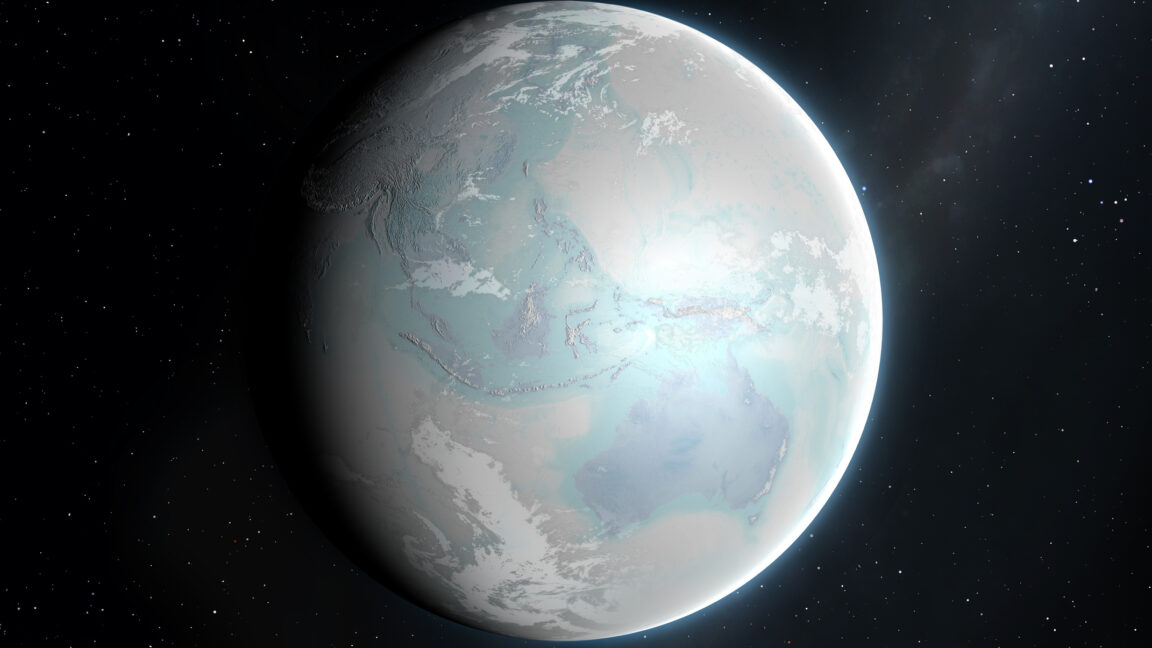By now, it has been firmly established that the Earth went through a series of global glaciations around 600 million to 700 million years ago, shortly before complex animal life exploded in the Cambrian. Climate models have confirmed that, once enough of a dark ocean is covered by reflective ice, it sets off a cooling feedback that turns the entire planet into an icehouse. And we’ve found glacial material that was deposited off the coasts in the tropics.
We have an extremely incomplete picture of what these snowball periods looked like, and Antarctic terrain provides different models for what an icehouse continent might look like. But now, researchers have found deposits that they argue were formed beneath a massive ice sheet that was being melted from below by volcanic activity. And, although the deposits are currently in Colorado’s Front Range, at the time they resided much closer to the equator.
In the icehouse
Glacial deposits can be difficult to identify in deep time. Massive sheets of ice will scour the terrain down to bare rock, leaving behind loosely consolidated bits of rubble that can easily be swept away after the ice is gone. We can spot when that rubble shows up in ocean deposits to confirm there were glaciers along the coast, but rubble can be difficult to find on land.
